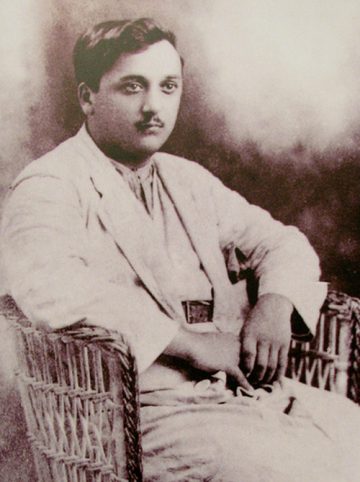The views expressed in our content reflect individual perspectives and do not represent the authoritative views of the Baha'i Faith.
The first duty prescribed by God for His servants is the recognition of Him Who is the Dayspring of His Revelation and the Fountain of His laws, Who representeth the Godhead in both the Kingdom of His Cause and the world of creation. Whoso achieveth this duty hath attained unto all good; and whoso is deprived thereof, hath gone astray, though he be the author of every righteous deed. It behoveth every one who reacheth this most sublime station, this summit of transcendent glory, to observe every ordinance of Him Who is the Desire of the world. These twin duties are inseparable. Neither is acceptable without the other. Thus hath it been decreed by Him Who is the Source of Divine inspiration. – Baha’u’llah, The Most Holy Book, p. 19.
In the passage above, Baha’u’llah instructs everyone, as their first spiritual duty, to recognize the Prophet of God for this age.
This prescription for recognition addresses itself to those who already serve God—“His servants”—those who live in knowing submission to their Creator, no matter their religion. Baha’u’llah also indicates that some of the servants of God will achieve this duty, and some will be deprived of it:
It behoveth everyone to traverse this brief span of life with sincerity and fairness. Should one fail to attain unto the recognition of Him Who is the Eternal Truth, let him at least conduct himself with reason and justice. – Baha’u’llah, The Summons of the Lord of Hosts, p. 168.

The first quote above was translated from the Persian by Shoghi Effendi, the Guardian of the Faith. The Guardian, a classically-trained Oxford scholar, meticulously employed the English language in his translations of the Baha’i writings. Knowing that, we might find the key to this passage by seeking a definition of the word “recognition.” What does it mean?
The word recognize has as its root the “knowing again” or to “perceive an identity with something formerly known or felt.” This recognition then, does more than simply indicate a tacit intellectual acknowledgement of the fact of the prophet’s role and person; it effects a momentous spiritual transformation in the true servant of God.
This act of recognition of the prophet of God asks that “the true servants of God partake of the life-giving waters of reunion…” and “are able to drink of the soft-flowing river of immortality.” – Baha’u’llah, Gleanings, p.33. That phrase, “life-giving waters of reunion,” would indicate that the true servant of God is given spiritual life as a result of, or through, his recognition of the prophet of God:
Know then that ‘life’ hath a twofold meaning. The first pertaineth to the appearance of man in an elemental body, and is as manifest to thine eminence and to others as the midday sun. This life cometh to an end with physical death, which is a God-ordained and inescapable reality. That life, however, which is mentioned in the Books of the Prophets and the Chosen Ones of God is the life of knowledge; that is to say, the servant’s recognition of the sign of the splendours wherewith He Who is the Source of all splendour hath Himself invested him, and his certitude of attaining unto the presence of God through the Manifestations of His Cause. This is that blessed and everlasting life that perisheth not: whosoever is quickened thereby shall never die, but will endure as long as His Lord and Creator will endure. – Baha’u’llah, Gems of Divine Mysteries, p. 47.
This giving of life through the recognition of the Prophet, also known as the Manifestation of God, points to the “spiritual rebirth,” the “second birth” or “baptism in the Spirit” that Abdu’l-Baha often mentions:
The Prophets come into the world to guide and educate humanity so that the animal nature of man may disappear and the divinity of his powers become awakened. The divine aspect or spiritual nature consists of the breaths of the Holy Spirit. The second birth of which Jesus has spoken refers to the appearance of this heavenly nature in man. It is expressed in the baptism of the Holy Spirit, and he who is baptized by the Holy Spirit is a veritable manifestation of divine mercy to mankind. – Abdu’l-Baha, The Promulgation of Universal Peace, p. 41.
You have acquired the love of God. You have attained to the knowledge of God. This is the most great bestowal of God. This is the breath of the Holy Spirit, and this consists of faith and assurance. This eternal life is the second birth; this is the baptism of the Holy Spirit. – Ibid., p. 188.
Without this rebirth, this recognition of the Prophet of God, “whoso is deprived thereof, hath gone astray, though he be the author of every righteous deed.”
















Comments
Sign in or create an account
Continue with Googleor